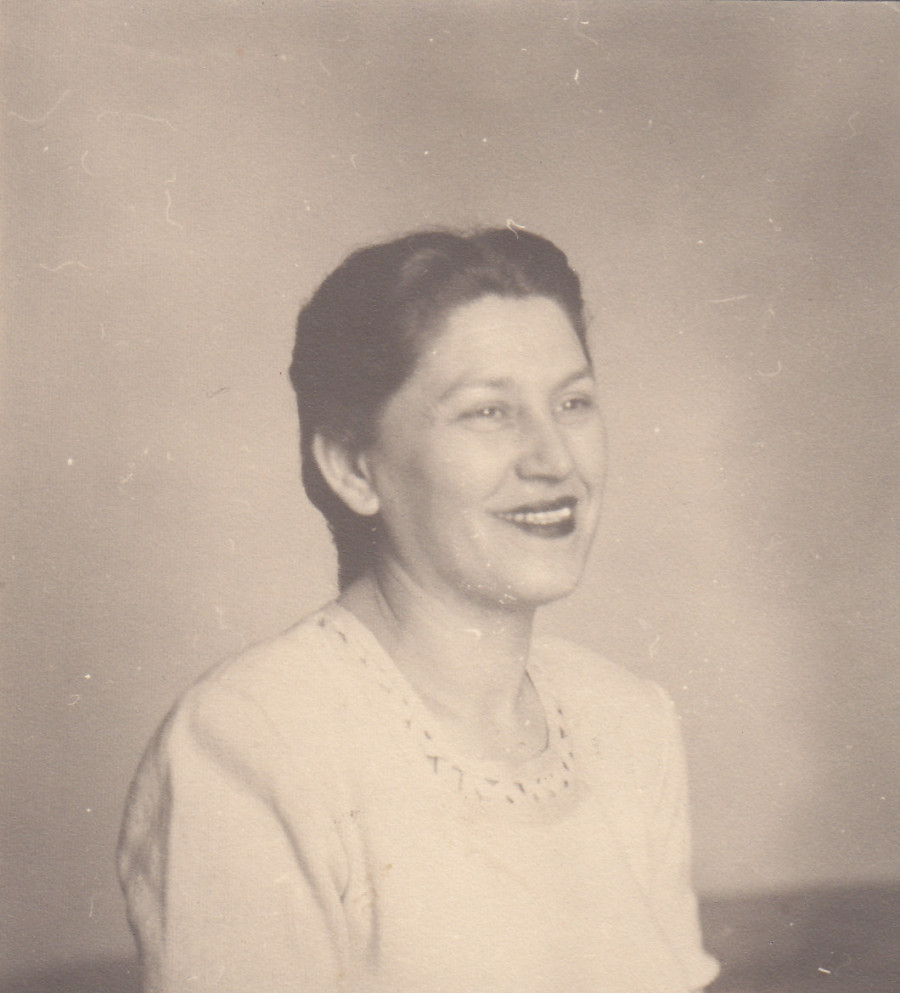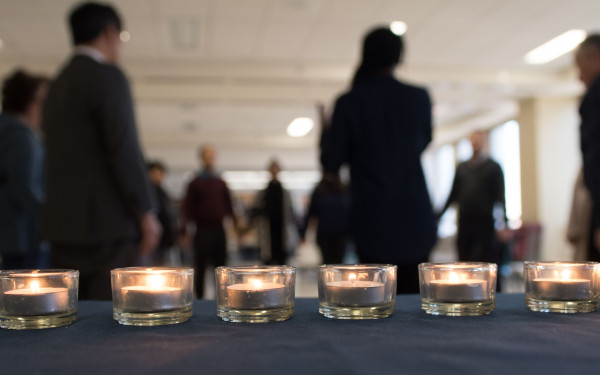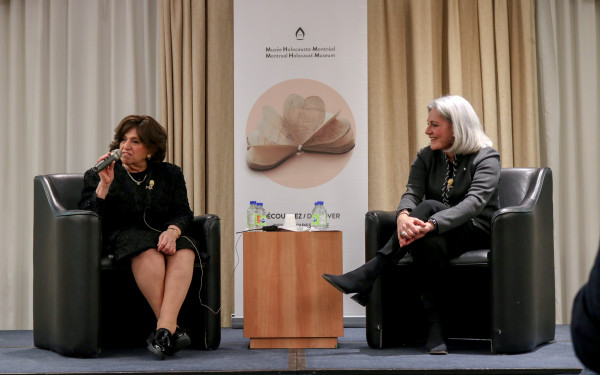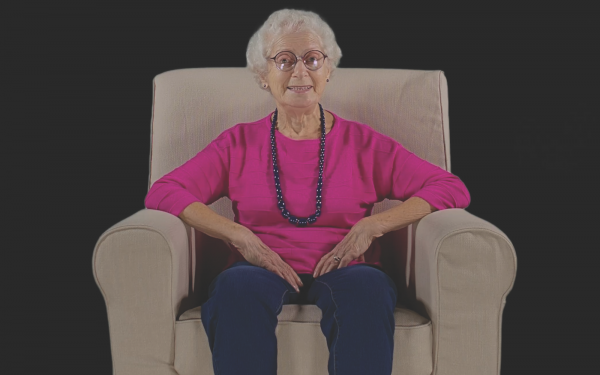The Life of Clara Geisman, Jewish Holocaust Survivor
Excerpts of My Great-Grandmother’s Unpublished Memoir
I wrote this book to let people know not to make a mess of their lives, like I did.”
Chills ran through my spine as I read the introduction of my great-grandmother’s unpublished memoir, Clara. Although I never met my great-grandmother, I have always been intrigued by the tragic and adventurous life she led.
Born in 1904 in the city of Chisinau, Moldova, Clara Geisman’s book recounts her life as a Jewish woman in fascist Italy, the deportation of many members of her family to Siberian work camps, and the time she spent as a political prisoner due to her Jewish heritage.
Clara grew up in an upper-middle-class home surrounded by her seven siblings and her parents. Due to her father’s military heroism in the Russo-Japanese War, the Geisman family was exempted from restrictions normally preventing Jewish people from living in certain areas.
Although her childhood was for the most part idyllic, at a very early age Clara witnessed the horrors of war when Romanian forces invaded Moldova, then part of Russia, in the early 1900s.
“Many people we knew had their houses broken into,” she wrote. “They attacked mostly Jews. They believed all Jews were rich, and would use that as an excuse to commit violence against us. Young girls caught on the street were raped and left with unforgivable babies and broken furniture.”
Shortly after the conflict ended in 1918, a Romanian language skills assessment became compulsory for anyone who wished to pursue a university degree. Unfortunately, due to her limited Romanian language skills, Clara, who was an aspiring pharmacist, failed the assessment. To continue her education, she made the difficult decision to immigrate to Italy and live with her cousin Aaron in Milan in 1928.
Due in part to the language barrier, initially Clara had a hard time adjusting to life in a country very culturally different from Russia.
“When I arrived in Italy, my cousin wanted to introduce me to some of his friends, so we went to a restaurant,” she wrote. “They offered me spaghetti, but I had never seen spaghetti before. I wanted to wait for them to start eating to see how they ate it first.”
Over time, Clara became increasingly accustomed to her new life in Italy. In order to perfect her Italian language skills and save up enough money to enroll in university, she worked as a toy designer. However, her plans would radically change when she met the love of her life, Nino Petino.
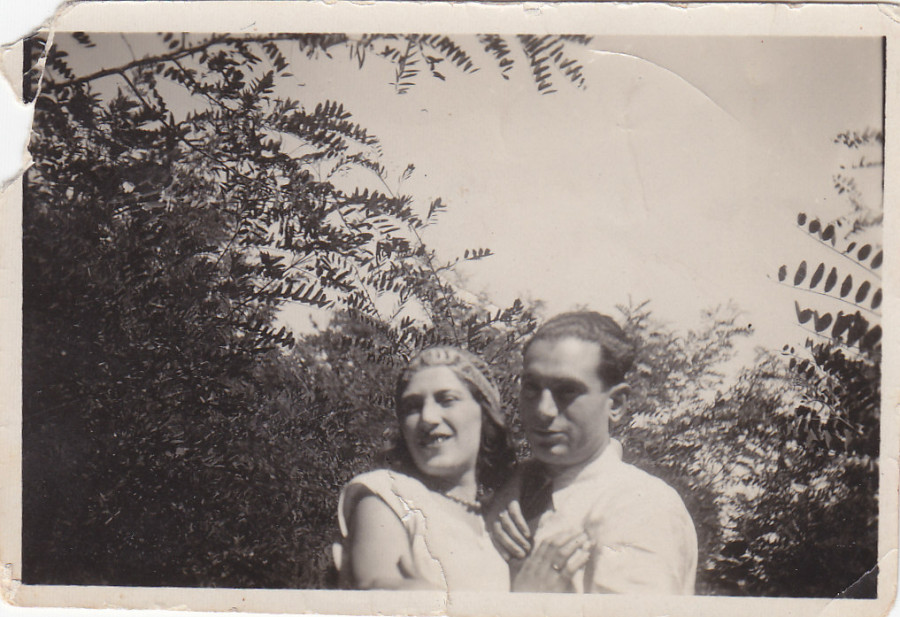
“All that happened to me before that moment must have been dreams,” Clara wrote of their first encounter. “I have only been fully awake and truly alive since I have known this man.”
At the beginning of their relationship the couple was very much in love and even planned to get married. Although initially hospitable towards Clara, Nino’s ardently religious and traditionally minded parents would not allow the union to occur after learning Clara was a Russian Jew.
Over time, their passionate romance began to fade. Due to his job as a traveling salesman, Clara was separated from her boyfriend for weeks at a time. Eventually, the couple had two children together, Pinuccia Petino, in 1932, and my grandmother, Ines Petino, in 1933.
“My mother was very much in love with my father, but he wasn’t in love with her,” Ines explained when asked about her parents’ relationship. “She always had to say yes, and he was always bossing her around, so it was very difficult for my mother. She would cry all night sometimes.”
Unfortunately, the immense joy Clara felt after the birth of her first daughter would be short-lived, since Nino’s mother, Giusepina Petino, eventually forced her to leave Pinuccia with their family.
As an unmarried Jewish immigrant, Clara had no choice but to comply with these demands.
“Nino’s mother had made my child her own. Leaving Pinuccia behind in Catania, I knew that my motherhood had been stolen,” Clara lamented in her memoir.
For a while, Clara lived in poverty with her young daughter Ines. Nino would often disappear for long periods of time and only occasionally provided the family with financial assistance. Due to a rising tide of anti-Semitism and her precarious financial situation, when Ines was five years old, Clara made the difficult decision to send her off to live with Pinuccia and the Petino family in Genoa.
“To be a Russian Jew in Mussolini’s Italy was to wait for death.” Clara wrote.
Leaving her mother at such a young age and moving in with her grandparents, whom she barely knew, was a very emotionally painful experience for Ines.
“It was very difficult for me to live apart from my mother,” she said. “When I went to live with my paternal grandparents, they were a very happy family. They didn’t treat me badly, but I felt like they did not care for me, so I was always thinking about my mother.”
Over the next few years, Clara visited her children in Genoa as often as she could and regularly sent them letters. Her relationship with Nino would also continue until 1938, when he left her for another woman. Despite all the hardship she endured, the emotional turmoil Clara experienced during this breakup was among the most devastating.
Although their relationship was often wrought with tumult, infidelity, and, at times, even abusive behaviour, the intense love Clara felt for Nino lasted until the very end of her life.
“How a man could grasp a woman’s life so tightly in his hands I cannot say,” she wrote towards the end of her book. “I only know it is the truth. My life began when I saw Nino’s smile and it will be over when he draws his last breath.”
“To be a Russian Jew in Mussolini’s Italy was to wait for death.”
— Clara Geisman
When the Nazis invaded Italy in 1943, Clara was forced into hiding. Due to her Jewish identity, she was unable to find work and was only able to survive by illegally selling contraband cigarettes.
“I lost my home, my pretence of a normal life, my security, and my peace. I was already a non-person. I had no legal existence in Italy,” she wrote. “My name was stolen, my papers a forgery, my identity as Nino’s wife a bogus, empty lie. Everyone was afraid of each other. No one knew who was working for the Nazis and who was working for the partisans. Nothing was safe, except silence.”
Luckily, due to completing all the necessary Catholic rites of passage, such as their baptism, first communion, and confirmation, Ines and Pinuccia were not in imminent danger of being captured by Nazis.
Ines, who was 10 years old at the time of the invasion, was not afraid. “I was not worried about being discovered as a Jew, because I was too young to fully realize the dangers of being Jewish,” she said.
Unfortunately, Clara would not be so lucky. In 1943, Nazis raided Clara’s apartment. She describes this frightening event in vivid detail in her autobiography:
“My heart dropped. They had found my trunk and in the bottom, there were letters from my mother in Hebrew and a replacement of my birth certificate signed by the rabbi in Chisinau.”
After she confessed to being Jewish, officers took her to the local police station for further questioning. They initially suspected that she was a Russian spy. When the lengthy interrogation was complete, Clara was taken to a dank jail cell infested with rats, where she spent an indefinite amount of time. She screamed hysterically as the rats crawled all over her body, until her mouth became dry. Eventually, Clara was taken to a large waiting room filled with people.
“When would they come to shoot us? When would they take us away to the camps? We didn’t know. We just waited,” she wrote.
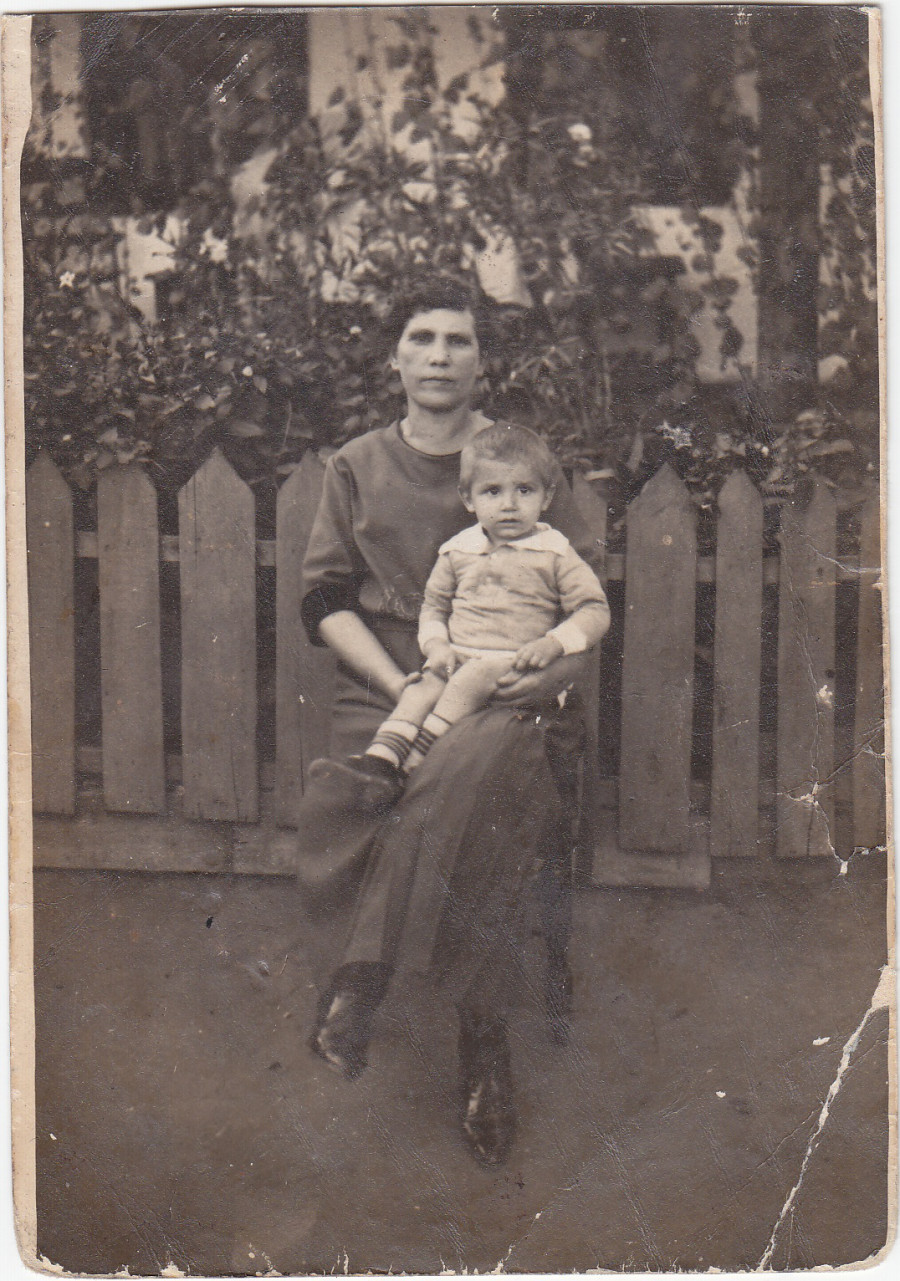
Due to being ethnically Jewish, Clara was taken to a prison called Monza.
“I sat quietly amongst the murderers and other criminals in my little bed in the corner and waited. They were all very rough and said nasty things to each other all the time.”
Eventually, a Gestapo officer came up to her and began interrogating her once again.
“Are you Jewish?” he asked
“Yes I am a Jew.”
He laughed and, to another Gestapo man, he said two words, “zum schiessen,” which means “to be shot.” Clara was then lined up against a big wall with all the other Jews waiting for what she believed was her imminent death. At the last moment, a German man barked another order:
“Nicht Schiessen”—don’t shoot.
“That was the order and I was not dead,” she wrote.
Unfortunately, this would not be the end of her hardship, and she was soon transferred to an extremely small cell with almost no light, no fresh air, and no plumbing.
“We lived like animals. Moment to moment, without yesterday and without tomorrow. I didn’t care about anything anymore,” she wrote. “Time was a never-ending grey bog. We were eight Jews, eight human beings in this little room. We were only there because we were Jewish. I knew that was the only reason.”
While in prison, Clara gave most of her food to children to help them survive. She was constantly hungry and continued to lose weight. This lasted until 1945 when the war finally ended, and she was once again a free woman.
After she was released, Clara promptly found work at a Jewish community centre and spent a significant amount of time trying to convince Nino to let her see Pinuccia and Ines. When it became apparent to Clara that she would not see them for a long time, she immigrated to Canada, which she perceived as a desolate place, in the early 1950s.
“After all I went through, I wanted to go far away. So far, that there would be no more civilization,” Clara wrote.
There, she met her future husband, Abraham Lifshitz. Her daughter Ines would eventually join her in Canada in 1961, get married, and have three children.
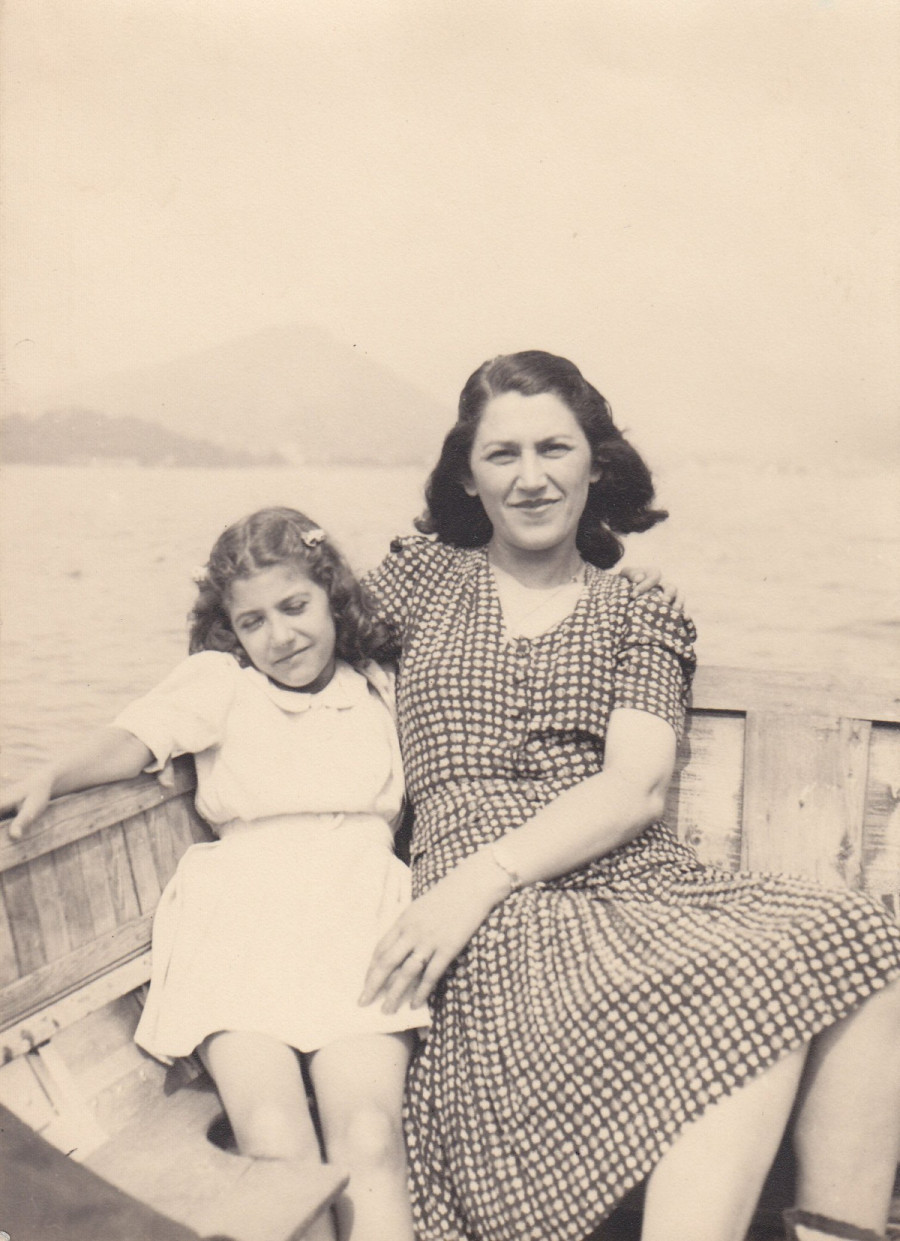
Despite Ines and her family’s best efforts, Clara’s book has still not been published. When asked why it was so important to share her mother’s story with the world, Ines explained “Because of all the disappointments she had in her life, I wanted to fulfill her last wish and get the book published.”
Even today, there are many unanswered questions about Clara’s life in Russia and her past that are not answered in the autobiography.
“I hardly know anything about her past. I didn’t want to ask her too many questions. I don’t know if she lost touch with her relatives in Russia,” said Ines. “This is a big mystery for me that will always be on my mind. When I meet her, it’s the first thing I will ask her.”
In order to help my grandmother find more information, I encouraged her to do a DNA test, which led her to discover a long-lost cousin living in Israel named Izhar.
“It was very emotional to meet Izhar. Finally, I was able to meet somebody from my mother’s side of the family,” said Ines. “I am very proud of my Jewish identity. It appeared on the DNA test, but even before that, it always made me emotional to hear Jewish music. I can’t explain why.”
Although her autobiography may never be read by the public, through sharing her experiences with The Link’s readers, I feel in some small way I have helped ensure Clara’s story will not be forgotten.
If anyone reading this story would like to assist our family in publishing the book, we encourage you to contact us directly by email at modonesea@gmail.com

